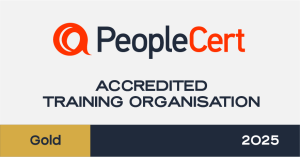Call Us
 (03) 2035 9258
(03) 2035 9258

Many organisations focus on the performance of individual projects, or at best on the performance of individual programmes and projects, rather than on the performance of the sum-total of all their change initiatives ie, the portfolio. This makes it difficult to properly evaluate the cumulative effect that change initiatives will have on the organisation and to coordinate the implementation of change so as to safeguard the integrity of business operations.
To address this, the Office of Government Commerce (OGC) has recently published the MoP Guide (Management of Portfolios) to accompany the already existing guidance for Programme Management (MSP®) and Project Management (PRINCE2®).
Portfolio Management is concerned with:
The objective of the Foundation course is to enable delegates to understand the key principles and practices in successful Portfolio Management as described in the official OGC MoP Guide.
The course comprises a 2-day balanced blend of presentations, individual activities and discussion sessions. Delegates should also set aside some time for self-study and exercises during the evenings.
Participants are provided with an annotated hard copy of the slides together with any exercises, examples and templates discussed or developed during the workshop, as well as a copy of the official MoP™ Guide and a mock foundation exam paper.
The objective of the practitioner course is to develop an in-depth understanding of MoP and how it can be applied in practice. The course builds on the knowledge gained during the Foundation program and improve the delegate’s ability to analyse portfolio data, documents and roles in different business situations. By the end of the course delegates will have a sufficient understanding on how to tailor and apply MoP.
Anyone involved in planning, delivering and contributing to, programmes and projects and organisational strategy from inception to delivery. This includes:
1. Running the Business vs Changing the Business
Gaining an understanding of the relationships between day-to-day business operations, performance management and managing a portfolio of change, and of how the quality of change impacts the quality of business outcomes and the benefits of change.
2. MoP Structure, Principles, Practices and Benefits
A first look at the structure, principles, practices of Portfolio Management, the business problems it is designed to address and the benefits that can be derived from its implementation.
3. Strategic and Organisational Context
The business activities that Portfolio Management needs to be integrated with, and how to ensure that the change portfolio is aligned with the organisation's strategy and strategic plans.
4. Portfolio Definition Cycle
The activities required to understand, prioritise, balance and plan a change portfolio that is aligned with the organisation's strategic plans
5. Por tfolio Delivery Cycle
The activities required to ensure that the change portfolio is delivered in accordance with expectations, that the benefits are realized and that Business- as-Usual is safeguarded.
6. Roles & Responsibilities The different roles involved in governing and managing the portfolio, with their responsibilities.
7. Implementing and Sustaining Por tfolio Management Different approaches available to
implement MoP within an organisation, starting from an assessment of the
pre-existing situation.
8. The Por tfolio Management Framework
The central repository containing a description of the agreed portfolio management practices adopted by the organisation and its governance arrangements.
9. Energised Change Culture
An investigation of what it takes for an organisation to be willing and capable of undergoing change.
The course is scenario based, focusing on the application of portfolio management in accordance to the MoP best practice guidance. Review and revision sessions are included throughout the training.
A Practitioner sample exam paper is also used during the training to identify and address knowledge gaps.
Fees per person
| MoP® Management of Portfolios - Course & Exam Vouchers (4 days) | ||
| Live Virtual Training: | MYR 9,075 + gst | |
| All participants will receive: | |
| • Practice Examinations | |
| • MoP Foundation Certificate Exam - Included: Take2 Re-sit Exam | |
| • MoP Practitioner Certificate Exam Available to purchase via PeopleCert - Take2 Re-sit Exam option. |
|
| • Unparalleled Post Course Support | |
| Course Materials: | |
| • HARD + E-COPY: MoP Manual Management of Portfolios published by AXELOS Limited | |
| • HARD COPY: Comprehensive Course Workbook | |
Live Virtual Training – Participants will be provided with an online exam voucher to sit the exams at a time and date of their choosing within 12 months of the course. The web-proctored exams are available 24/7 and run by the examination institute PEOPLECERT.